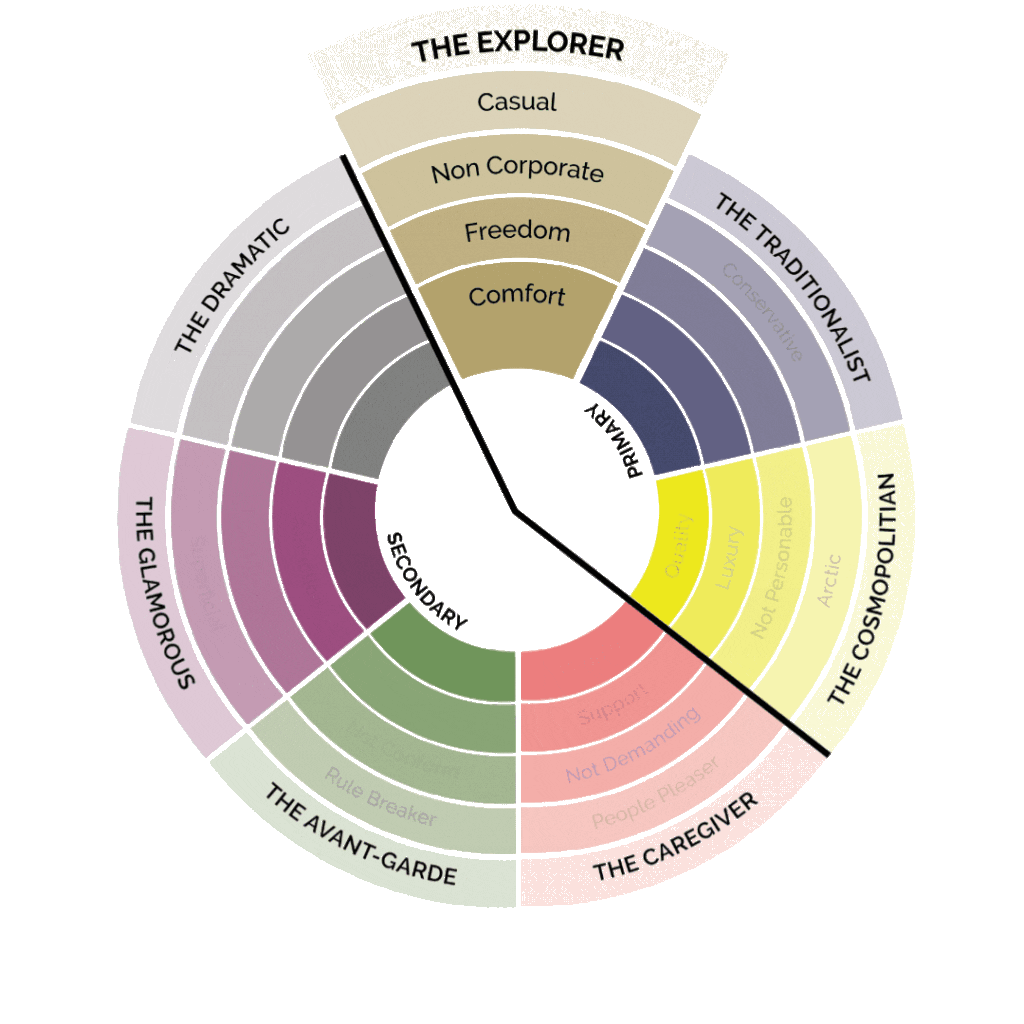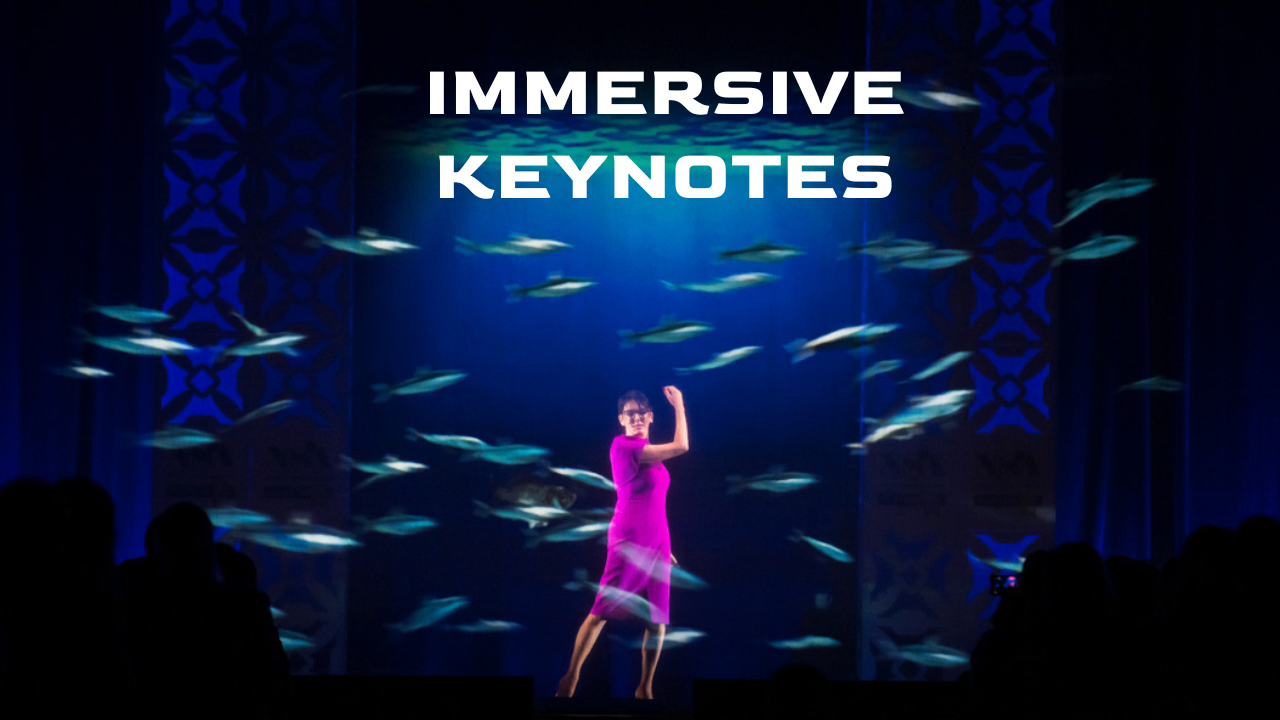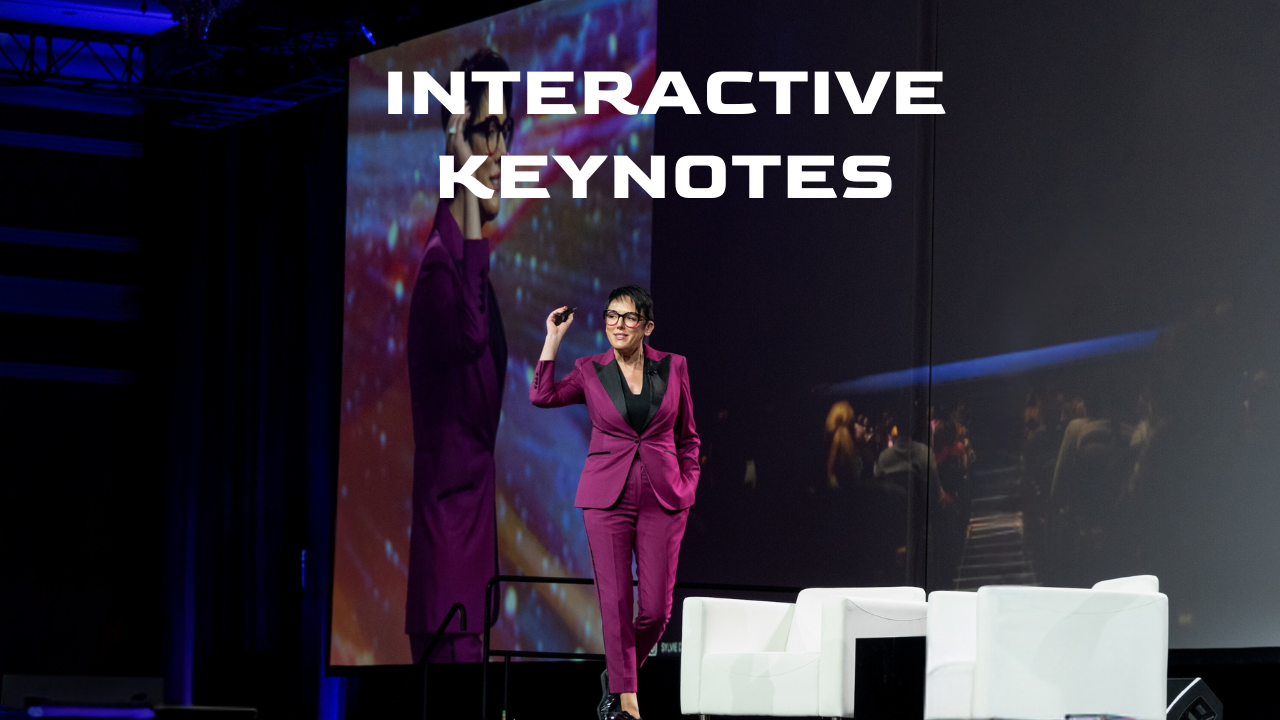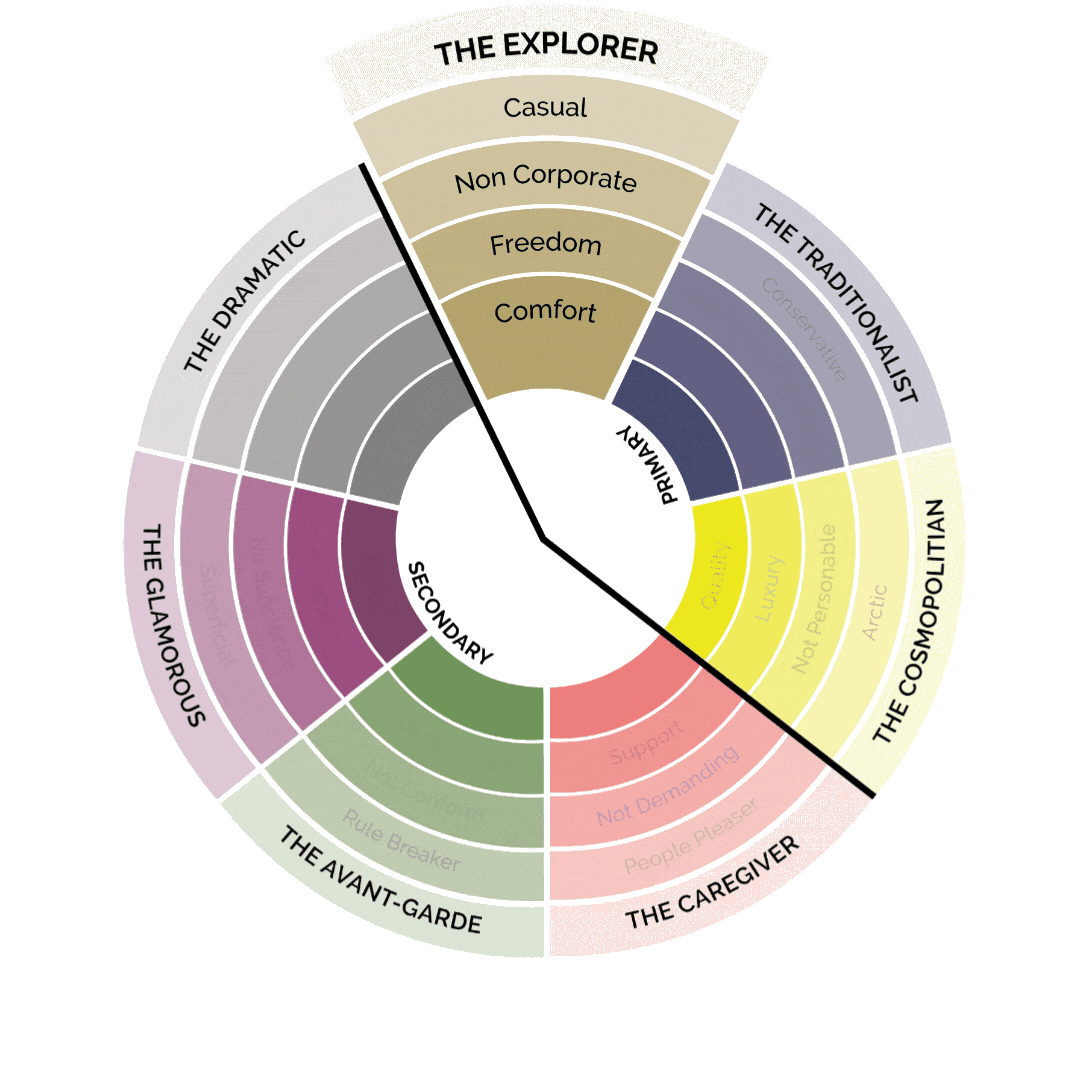When Opinions Go Public: Navigating Politics and Social Media
When I sat down with Brad Weisman on The Brad Weisman Show, what unfolded was a candid, energizing conversation about the twists and turns of my personal and professional journey. We talked about everything—from the fear of public speaking in a second language to the future of keynote presentations and the tricky space where politics and social media collide.
Key Takeaways
- Posting political content can trigger unintended ripple effects—beyond losing followers, it may make professionals seem polarizing or unreferrable in their industry.
- Even subtle digital actions—like reposting, liking, or staying silent—can be perceived as endorsements, shaping your personal brand whether you mean to or not.
- The intent-impact gap is real—what you mean to express often differs from how others interpret it, especially in emotionally charged conversations online.
- To navigate politics and social media professionally, focus on universal values and aim for conversations over confrontations.
- Online behavior is always under observation, and your unintentional digital footprint can speak louder than your most polished statements.
- Public platforms demand intentionality—how you show up in political conversations will influence your credibility, visibility, and long-term reputation.
- At its core, how you approach politics and social media reflects your leadership choices—and mindfulness in that space is one of the most powerful tools you have.
From Corporate Executive to International Keynote Speaker
We started by hitting rewind—going all the way back to where my story began. Before I ever stepped on a keynote stage, I spent two decades in the corporate world, eventually leading the management academy for Europe’s largest retail and tourism company. But life had other plans. When my husband was offered a job in Philadelphia, we packed up our lives—just days after our daughter was born—and headed to the U.S.
The transition was anything but smooth. I struggled with the thought of re-entering the corporate world. But slowly, an idea started to take shape: what if I took everything I had learned and shared it from the other side of the stage? So I took the leap. The first two years? Let’s just say I learned by doing. A lot. But with time, passion, and persistence, things started to click.
The job I left taught me everything—the job I created showed me why.
Politics and Social Media: A Risky Combination
If you know Brad, you know he’s not afraid to ask the tough questions—also when it comes to the intersection of politics and social media. So at one point, h dove right in and challenged me with this one: “Is it really true that if you post something on social media—say, political—you risk losing half your audience?”
My answer might surprise you. The idea that you’d lose only half your audience is actually oversimplifying the issue at hand—because the reality is far more complex and far-reaching. When you post something political, you’re not just risking losing a segment of your audience—you’re creating a ripple effect. It might shift how you’re perceived in circles where neutrality is valued, and it could call into question your professionalism, not because of what you believe, but because of how publicly and passionately you choose to express it.
As a professional speaker, for example, I’ve experienced firsthand how one social media post—especially one that touches on politics—can ripple far beyond your immediate audience. You don’t just risk polarizing people who don’t share your political values; you risk becoming unreferrable to peers who once championed your work, or to speaker bureaus who now see you as too risky to recommend. Even those who agree with you politically might hesitate to book you, unsure whether you’ll carry that message to their stage.
It’s not just about what you believe—it’s about how that belief, when broadcasted, affects your perceived neutrality, credibility, and professionalism in the eyes of others.
Posting isn't free—it comes with reputational cost.
The Perception Gap: What You Meant vs. What They Heard
Even well-intended posts can be misinterpreted in the emotionally charged world of social media—especially when politics is involved. The gap between what you meant to say and how it’s perceived can be enormous. On platforms where speed and outrage often outperform nuance, context can disappear with a single scroll. For professionals navigating politics and social media, understanding this “intent-impact gap” is critical.
You might share a post in support of a policy because you believe in its positive impact, but others might interpret it as an endorsement of a broader, more polarizing political agenda.
You might comment on a social issue intending to show empathy or solidarity, but someone else could read it as performative or out of touch, depending on their lived experience.
Even seemingly neutral phrases like “Do your own research” or hashtags like “Freedom” can carry vastly different meanings depending on who’s reading them—what you intended as a celebration of liberty, others may interpret as a political stance or cultural critique loaded political connotations depending on who is reading—and what they associate with those terms.
The challenge is that digital platforms strip away tone, body language, and context—so even your most thoughtful post can be misunderstood. That’s the heart of the intent-impact gap: the story you think you’re telling versus the one your audience hears, shaped by their own values, assumptions, and emotional state in the moment. Recognizing this doesn’t mean censoring yourself, but it does mean pausing to consider: is the message you’re about to post clear, necessary, and aligned with how you want to be remembered?
It’s not about watering down your values—it’s about communicating with care, knowing that even subtle signals can carry unintended weight.
You own your words—but not their interpretation.
Reposting Isn’t Neutral: The Responsibility of Sharing
Many believe that reposting someone else’s political content gives them a layer of separation—but in the eyes of your audience, it’s still a public endorsement. Sharing—even passively—signals alignment, whether you intended it or not. The ripple effects of amplifying political content can be just as significant as posting original commentary. It can influence how your network perceives your values, your judgment, and your willingness to engage with divisive issues. Even if you didn’t write the post, by elevating it on your platform, you may still be seen as endorsing its tone, its implications, or its unintended consequences. And there are many more subtle hints that include
- liking or reacting to posts with political messages,
- following or unfollowing political figures
- using politically charged hashtags
- tagging others in posts with implied endorsements
- updating profile bios or photos to reflect current movements or causes
- joining or promoting politically themed groups or events
- and even remaining silent during high-profile controversies—because inaction, too, can be interpreted as a statement depending on context and expectation.
The digital breadcrumbs we leave behind—the likes, shares, reposts, and silent nods—can say just as much about us as our most carefully curated posts. This unintentional digital footprint, the one we’re not even aware we’re crafting, is under just as much scrutiny. In an age where audiences, clients, and collaborators observe constantly, your online presence is not built only by what you say intentionally—but by what you echo without even realizing it. And often, it’s that subconscious layer that tells the loudest story.
You curate your credibility with e.v.e.r.y click.
What To Do Instead: Practical Strategies for Navigating Politics and Social Media
Before you hit “post,” “like,” or “share,” take a breath. The intersection of politics and social media is layered, emotional, and often misunderstood. But it’s also manageable—if approached intentionally. Below are five strategies I’ve found useful in navigating this tricky terrain without losing your voice—or your reputation.
Focus on universal values, not divisive views: Instead of sharing specific political opinions, consider posting about shared human values like integrity, empathy, justice, or resilience. These themes transcend partisanship and often resonate more broadly across your network.
Engage in conversations, not confrontations: Use social media to ask thoughtful questions or invite discussion—not to declare absolute positions. You can signal what matters to you without alienating those who see things differently. Tone and context are everything.
Share your learning, not your leaning: If you’re passionate about a political topic, share a book, podcast, or article that opened your eyes—with a note about what you learned. This shifts the focus from telling others what to think to how you’re thinking.
Reinforce your brand, don’t compromise it: Remember, every post contributes to your personal brand. Ask yourself, “Would I feel proud seeing this on a conference screen next to my name?” If not, it’s better left in the drafts.
Use your platform to elevate, not agitate: Amplify stories and causes that align with your values without turning them into battlegrounds. It’s possible to use your voice powerfully—and professionally.
Navigating politics and social media isn’t about staying silent—it’s about being smart. You don’t have to weigh in on every trending topic to demonstrate leadership or values. You just have to be consistent, thoughtful, and aligned with the kind of reputation you want to build. Because the reality is: people are always watching—and remembering.
And the strongest impressions you leave may come not from what you say, but how wisely you choose when and where to say it—or not at all.
Speak where you're heard. Not where you're judged.
What We Talked About Beyond Politics and Social Media
While our discussion around politics and social media was certainly a hot topic, it was far from the only one. Brad and I covered so much more—topics that dig deep into what it really means to lead, to grow, and to show up fully in this ever-shifting professional landscape.
We talked about the power of accent—and how what once felt like a barrier became my superpower. For years, I thought my accent would hold me back, especially when seated next to eloquent political experts or polished media personalities. But then came that turning point: a television producer told me that my clear, simple way of communicating was actually a strength. Not only did it cut through the noise, but it also made complex topics feel more accessible. That moment rewired how I saw myself—and how I embraced what makes me different.
We explored the psychology of first impressions—the invisible decisions people make about us before we’ve even finished a sentence. We talked about the “lazy brain,” the tendency to judge quickly based on past experiences and internal biases. I shared insights from my research, like why we remember the beginning and end of an experience more vividly than the middle, and why some leaders fall prey to the “CEO disease”—the dangerous illusion that feedback is optional once you’ve made it to the top. Spoiler: it’s not.
We also touched on reinvention—how crucial it is to evolve. I shared why I updated my book The Image of Leadership with ten special editions, tailored to different industries, and how my leap into immersive, 3D keynote technology was not just a creative decision, but a strategic one. Because staying relevant isn’t about being flashy—it’s about being intentional.
We talked about responsibility—specifically, the responsibility that comes with being on stage. I mentioned how I see every keynote as a moment where I’m borrowing time from someone else’s life. And that’s not something I take lightly. When someone sits down to hear me speak, my goal isn’t just to inform or entertain—it’s to honor their time with something useful, meaningful, and, hopefully, unforgettable.
And ultimately, we talked about choice. Because at the end of the day, every topic we explored—from navigating social media, to embracing your accent, to staying relevant—is about making intentional decisions. About knowing you always have a choice in how you show up, what you say, and the kind of impact you want to leave behind.
That’s the power of choice. And whether we’re navigating public platforms or private moments, it’s one of the greatest tools we have.
The power of choice isn’t a tagline—it’s a responsibility. And every decision you make either builds your legacy or borrows from it.
ADDITIONAL RESOURCES
Legal Experts Warn Federal Workers Against Venting On Social Media by Forbes
This article highlights the risks federal employees face when expressing political views online, emphasizing potential security clearance issues and professional repercussions.
Politics Dominates Social Media – That Continues To Divide America
This piece explores how sharing political opinions on social platforms can deepen societal divisions and affect personal and professional relationships.
About Brad Weisman and The Brad Weisman Show

Brad Weisman is more than a real estate expert—he’s a dynamic storyteller, community leader, and the voice behind The Brad Weisman Show, a podcast that dives deep into the stories that shape people, careers, and communities. With a talent for asking the questions others won’t, Brad brings authenticity and energy to every interview, engaging guests in meaningful conversations that go well beyond the surface.
Whether he’s hosting CEOs, creatives, entrepreneurs, or thought leaders, Brad’s mission is clear: uncover the “why” behind the person. The Brad Weisman Show blends insight with entertainment, making it a must-listen for those who crave real talk, actionable takeaways, and the occasional curveball question that reveals the heart of the story.
From business wisdom to personal reinvention, Brad creates a space where honesty, humor, and inspiration intersect—and his ever-growing audience wouldn’t have it any other way.




